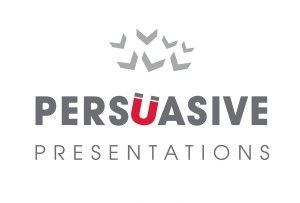Each day hosts across the country take to the airwaves spewing passionate opinions to engage audiences. Most will select stories that are being talked about in local papers and on local television and they’ll offer their own perspective on the subject and then seek out the audience’s feedback.
If you’re in a big market, phone activity will be high. Smaller markets will see less response. But whether you have 1 or 10 lines lit, that doesn’t mean the topic is hot or that the show is good.
Any good talent who is familiar to an audience, can sell a subject with passion, and elicit a response. You don’t get a passing grade in this business based on your ability to make a phone ring. That’s one part of the job. But there’s much more involved than delivering a ‘hot take’ and fielding a phone call.
I started thinking about the numerous things that go on during a radio show, and how the best performers in the industry bring them all to life on a daily basis. The great ones don’t even realize how much they do it. Those who do, stay in their positions for a long period of time because it usually means they’ve generated ratings.
To host a talk show for 3-4 hours per day, 5 days per week, and do it in expert fashion requires great skill. It’s one of the most difficult jobs in the entertainment business. Penetrating the mind of a listener requires many different approaches during a show but before you can have success executing your strategy, you need to understand what is involved and why it matters.
Standup comedians have a lot of success gaining entry into our minds. A comedian like Chris Rock, Jeff Ross, or Jerry Seinfeld can dominate a stage for 60-90 minutes and we’ll talk about their jokes and stories for the next week. But that’s only half of the time of what a sports talk show host does on a daily basis.
Could they deliver the same memorable lines, stories and laugh out loud moments if they had to double their workload each night? What if they had to provide it 5 days per week? Maybe they’d pull it off, but even the greatest in the world have weaknesses. The reason many of your favorite television programs are scripted, recorded, and edited is because creating meaningful LIVE content is extremely challenging.
That brings me back to the daily functions of a sports talk show. You can’t see when your listeners tune in or out, or how each person responds to the different subjects you discuss. Therefore, you’ve got to concentrate on the issues that most people care about because by positioning yourself that way, you set yourself up for the best chance to have success.
To get a better sense of what goes into a successful talk show, I came up with something that I believe highlights every important component of the job each day. Ladies and Gentlemen, I present to you “The 10 commandments of Sports Talk Radio“.
Identify The Hit Story – A host walks into their building each day wanting to discuss a number of things. The great ones understand that they benefit most by focusing their energies on the subjects that have the greatest appeal to the audience.
Many have heard the popular format term “play the hits” and that’s exactly what this is. Think of it like going to a concert to see your favorite band. You go because you want to see the artist play the songs that you know and enjoy most. If they play the songs they’ve never released, you’d be less likely to attend another show.
When you look at your show, you have to find the balance of what matters most to you, and what is most important to your listeners. The top story should be a subject with multiple angles that can be kept fresh over the span of a couple of hours. If it doesn’t have that potential, keep digging, because that means you’ve found a secondary topic.
A true hit story is one which will bring out your best 10-15 minute monologue, generate reaction over multiple hours of the show, capture the interest of guests who have been called to share their perspective on the angle, and open up other opportunities to be creative inside the program.
To use an example, if you were in Cincinnati today, you’d build your program around the Bengals collapse during Saturday night’s game. The rest of the NFL Playoffs may be compelling, and the same may be true for the College Football National Championship game, but the Bengals playoff disaster is going to move the audience most. Those other stories are your secondary hits.
However, if you were in Alabama, you’d easily flip the script and build your show around the College Football National Championship game. Everything else would be a secondary topic.
Present and Sell Your Topics – Once you’ve identified the hit story, the next step is understanding the multiple questions that can be asked and answered when discussing it. Every good subject has different sides to it. It’s your job to highlight those angles, explain your position on them, and let the audience determine how they feel about it. Don’t worry about whether or not you’re in the majority or minority with your stance, just focus on whether or not the audience will be invested in what you’re selling.
For example, if you were in Cincinnati and led off with your top story being “Marvin Lewis deserves to be fired“, you’d cite his poor playoff record, his lengthy stay which has shown that he can’t do better, and you’d question if he can control his players.
The other side to that argument would be that he was in position to win the game with a backup QB, he led the club to a 12-4 record including an 8-0 start, he’s developed NFL Head Coaches, and although he hasn’t won in the post-season, he still gets them there and has been among the best 10 in the league more often than not.
When you look at that angle, it’s easy to see how an audience could be divided on it. That’s why it becomes compelling. Presenting each side, stating where you sit, attacking the story with passion, and being honest and unapologetic with your point of view will help you keep the audience engaged.
Utilize Audio To Advance The Story – Some hosts lose sight of how important sound can be to their show’s presentation. I’ve heard people say “I hate using audio because it takes time away from my commentary“. That in my opinion is one of the silliest things you can think or say.
A great host recognizes that it’s not about the amount of words they deliver or the length of time that they speak. It’s how they maximize the minutes available inside their show. When you have audio that adds to your segment, it can be pure gold.
Think for a second about the fallout from the Cincinnati-Pittsburgh game on Saturday night. I don’t care which of those cities you’re in, if you were on the air after that game and didn’t use Pac Man Jones’ expletive filled rant (bleeping it out of course) to further the story, you missed a golden opportunity.
The story may be the game itself, but listeners are drawn to the reactions of others. When you utilize audio to further an angle, it mentally engages your audience and makes it harder for them to tune out. Nothing is better than using audio of someone noteworthy to support or argue against your opinion. It makes the angle seem bigger than it is, and it gives you a piece of content to react off of.
Remember this and never forget it, people are fascinated by other people.
You could sit in the studio after that playoff game and say “I believe the Bengals got screwed, and Pac Man Jones agrees with my point of view“. After you air his comments and express your thoughts, you’d follow up with “Unfortunately, Mike Tomlin doesn’t share the same opinion“. After playing a cut of Tomlin, you’d have the audience eating out of your hand because they’ve been asked to pick a side, and when conflict, debate, and arguments take place, human beings can’t turn away from them.
Invite Audience Participation & React To It – When you establish a good opinion built around the right top story, and use audio to create a heavier emotional investment in the content, people will want to get involved in the discussion. It’s your job to let them know how to do it.
If you say you’re going to take calls but then spend the next 2 segments talking about the story and not incorporating people into the show, why bother asking for participation? Don’t waste their time or promise something you’re not ready to deliver on.
Once you make the commitment to involve the audience, give them the floor, listen intently, and be ready to respond. The goal isn’t to blow through the 6 lines that are lit and fill the segment with their reactions. Only you know there are 6 lines lit up. Local listeners are hanging on your words and waiting to hear what others think so they can decide if they want to interact themselves.
The key is to welcome the caller on, make sure they’re adding to the subject you’re discussing (the call screener shouldn’t be putting on a caller to talk about the National Title game when you’re emotionally fired up and talking about why Marvin Lewis has to go) and after listening to their comments, share your own reaction.
Whether your response is 10 seconds long, or 2 minutes in length, it shows you’re paying attention and listeners appreciate that. It sounds bad when a host takes three calls in a row and never gives their own opinion to anything the callers said. They dialed you up to engage in conversation with them. The least you can do is make them feel that it was worth their time.
That said, participation can also come in the form of Texts, Tweets, Facebook or Instagram comments. You don’t have an obligation to take calls. The main focus is to allow people to be part of the content experience, regardless of which platform they contribute on.
Book Guests Who Fit The Day’s Stories – If your show includes guests, make sure they fit the stories you’re discussing each day. Every now and then an exception can be made for an A-list guest, but as a rule of thumb, guests who are booked should fit what the show is talking about, not the other way around.
Sticking with the Cincinnati example, if you’re on the air and Marvin Lewis’ future and the Bengals collapse is your focus, do you really want to stop your momentum to have a chat with Jay Bruce of the Reds? If he was coming on, the first question I’d ask him is “What’s your reaction to what took place during the Bengals game“?
The audience has an expectation that you’re going to discuss the material they care most about. While they may love Jay Bruce in April, he doesn’t fit Monday’s funeral for the Bengals season.
If there’s one other thing to add to the guest situation, it’s to understand that they don’t need to occupy your entire segment. The conversation may be worth 3 minutes or it could be worth 15. You’ve got to ask the things that resonate most, listen carefully to the responses, and then recognize when something is done and when there’s more meat on the bone.
I listen often to shows and hear many hosts sleepwalk through conversations. There’s this feeling that because the individual has taken their time to come on, they need to be hit with a number of softballs and given the full 10-15 minutes. That’s not accurate.
When a guest agrees to come on, they do so without a time commitment. By agreeing to the interview, they’ve also opened themselves up to any line of questioning. It’s their job to decide how they want to answer your questions but it’s your job to ask the right ones.
Don’t make the mistake of giving ten minutes of your show to someone who doesn’t want to help you advance a topic. Make sure they fit your top stories and are addressing the key questions. The thought going in should be that they’ll add something interesting that you’ll be able to use snippets of it throughout the remainder of the show. If they don’t check that box, then why are they on?
Tease One Item of Interest – When a host heads to break, they see it as the end of a segment and a chance to catch a breather. But not many take advantage of what they say last.
Telling your listeners “We’ve got a lot more to do including your calls, back after this” or “We’ll talk more about this Bengals loss, the National Title game, the rest of the NFL Playoffs, and anything else on your mind when we return” isn’t going to give them any incentive to hang around or come back.
Many broadcasters don’t treat this part of the craft with the importance it deserves and that needs to change. Much of it is due to laziness and lack of preparation. From where I sit, if you know your audience is going to be hit with 4-5 minutes of commercials and potentially leave your show, why wouldn’t you do everything possible to make them want to come back?
I’ve heard guys say “they’re going to leave when the spots run, so what can I do about it“? Actually a ton. If you’re interesting with the last words you offer, they will do one of two things:
A) Think about your question and forget that they’re listening to commercials because they’re trying to come up with the answer in their own mind.
B) Leave the station when the commercials hit but think about what you last said and keep checking back to see if you’ve returned so they can receive the answer to the question.
One piece of advice, tease one simple question or item of interest when heading to break.
When you toss out multiple subjects, you’re asking the audience to do a lot of work. You’re also showing that you’re disorganized and not sure yourself where the show is going next. Those who tease one thing, and do it by making the audience think, benefit most.
For example, “Everyone is crushing the Bengals for what transpired in that 4th quarter but one top analyst thinks they got the short end of the stick. Is he nuts? You’ll hear his response next“.
At that point you’d come back from your break with sound of Deion Sanders on the NFL Network explaining why he felt the hit on Antonio Brown shouldn’t have been penalized, and you’d react off of it. Most listeners would be asking themselves during the commercial break “Who the heck is defending that hit?” By keeping them curious, they listen longer and that helps you grow your ratings.
One final suggestion, take 15-20 minutes before your show writing out some strong teases. If you need help, involve your producer. If you put the effort in and do it consistently, you will sound better and it will help you improve your show’s performance.
Create Multiple Angles Off of The Lead Topic – This is one of the most important parts to any talk show because usually a producer and host focus on their first top story but put all of the focus into that subject and don’t look at dividing it up throughout the remainder of the show.
If you want to keep a subject fresh for 4 hours, you can’t keep repeating the same points. Remember, the audience constantly changes so each hour the top story remains important. If you unload everything all at once, you will be mentally exhausted. That then leads to less interest in coming back to discuss the top story or relying on phone calls because you’ve tapped out on the topic.
It takes patience and a keen understanding of why it’s necessary to not provide your thoughts on every angle from a game during one subject. When you develop the skill to do it, you’ll find it can be extremely helpful to spread out your key takeaways over the span of 3-4 hours.
Let’s use the Bengals game as the example. We’ll build hour #1 around the chaos of the final two minutes. You’d spend 10-15 minutes kicking off the show discussing what took place, how you felt about the poor decisions of Pac Man Jones and Vontaze Burfict, asking what the punishment should be for their actions, focusing on Joey Porter’s role in the controversy and offering your position on how you thought the referees handled things and what you think the NFL should do about it.
The rest of the hour would include audio cuts which are related to the story, phone calls, possibly a guest, and more of your opinions and reaction on the topic. Nowhere in this hour are you diving head first into topics built around the other angles from the game.
When you get to hour 2, do you really want to spend another sixty minutes saying the same thing? Probably not. But the Bengals game is still the top story. So how do you keep it fresh? By introducing a new angle.
During this hour you’ll turn the focus towards Marvin Lewis’ future as Head Coach of the Bengals and why he does or doesn’t deserve to be back. You’d look at how long he’s led the team, his regular season and playoff records, the way he has or hasn’t held players accountable, who else would be an option if he was to be fired, and where you believe the team will go in the future if he is or isn’t there.
Once again, you’d add audio, guests, calls and additional angles built off of the conversation about Marvin Lewis. The chaos of the 4th quarter is not your focus during these sixty minutes.
For hour #3, you’d turn your attention to how to revamp the roster and explain what you took away from AJ McCarron’s play and looking at where he fits next year with Andy Dalton coming back. You’d examine the way to make up for losing Hue Jackson, who the team’s free agents are and which ones should be back and allowed to leave, and the topic would be built around “how do we get this team over the hump“.
In each of those hours, the Bengals are the lead story. By changing the focus of your topics from the 4th quarter chaos to Marvin Lewis to getting the Bengals over the hump, you’ve offered topics that have audience appeal and are fresh enough to keep you mentally engaged.
Reset Your Subject and Position – The audience changes every hour. For the guy who works M-F 8a-5p, he’s in his car from 5p-6p and during that hour your show is brand new to him. What you did in the 3pm and 4pm hour has no relevance. He judges you and decides whether to continue listening based on what you present when he’s available.
On the other hand, if someone worked 7a-3p or 8a-4p, they have the same expectations. Given that most people spend less than an hour commuting home from their jobs each day, and they listen to multiple stations, and don’t often listen to a station everyday, the goal is to maximize the opportunities we get and make sure they know who we are and where we broadcast.
One way you do that is by resetting your name, station, topic and position. There’s no set time during the show when a reset should be introduced but I find that hosts have no problem doing it during interviews but struggle with it in open segments.
If a segment is 15 minutes long, there’s no reason why midway through the segment you can’t incorporate a reset. With callers it’s easy too and can be done every 2-3 calls depending on how long they go.
It may seem robotic to the host but that’s because you do it repeatedly. The audience though doesn’t listen to every second of the show. If they get into their car at 5:05pm and pick up the middle of your conversation, they have to try to figure out what it is you’re discussing. By resetting the show, station, topic and position midway through a segment, it makes it easier for the listener to play along.
Even if someone listens for an entire segment, they’re not going to vacate the show or station because you reminded them. This is how branding works. You’d be amazed at what people will recall about a host, show or station due to frequent messaging.
An example of a reset is “You’re listening to Mike and Mike on ESPN Radio, we’re talking about the Bengals loss from Saturday night and I (Greeny) think Marvin Lewis has to go as a result of this loss, but Golic thinks that’s a ridiculous overreaction. Let us know your thoughts by calling/tweeting ____“.
Sell, Sell, Sell – We want ratings so we can make money. We create features, updates, guest segments and other programming opportunities because they can be sponsored and help us make money. We may love the topics we’re discussing and the medium we’re performing in, but this is still very much a business and one critical part of our jobs is to sell the messages provided by our advertisers.

This includes promotional messages, sponsored segments, LIVE commercial endorsements, appearances, remotes, etc. Hosts are frequently in programming mode, and thinking about the things they’re most passionate about. If the audience though doesn’t buy your advertisers products, and those clients remove their dollars from your show, you won’t be sharing your passions for long.
We sell topics, teases, resets, guests, callers, and soundbytes. Sponsor messages are no different. We may lack the same level of interest in promoting an appearance or product as the weekend’s best games, but when you crack that microphone and read a sponsor’s name and tag, you owe them the same enthusiasm.
They buy you and your show because they’re aware of the influence you have on the audience. But if they can’t benefit from that association, they’ll take their business elsewhere. And that makes it harder for you to ask you employer for bigger paydays in the future. If you can be an asset to your company on the business end, it’ll help you through those times when you’re a liability on the programming end.
Promote Your Digital and Social Platforms – It’s more important than ever to have strong digital and social media platforms. Audiences are listening less to LIVE programming and accessing content on-demand when it best suits their schedule. Although we may prefer that they experience the content LIVE, as long as they consume it, we still gain from it.

It’s your task on the air and on social media to remind the audience of the various ways they can enjoy your content. Promoting the website, podcast links and the station’s social media pages so listeners can be informed of things they may have missed is vital. Maybe it won’t help you earn ratings credit, but that download of your audio or station app counts towards your digital performance and those numbers matter too because they’re being sold to advertisers.
You should be cognizant of promoting your own social media identity and being present in the space. If a listener is a fan of yours, they’re going to want to engage with you beyond the show. When they follow you on Twitter, Instagram or Facebook, they learn more about you, and that gives them further incentive to support you and the multiple things you’re passionate about.
Everything you do in life becomes content to them. The more they seek it out and form a stronger loyalty to you, the more it helps your own standing. And the more of an audience you have, the more power you possess come contract time.

Jason Barrett is the Founder and CEO of Barrett Media. The company launched in September 2015 and has provided consulting services to America’s top audio and video brands, while simultaneously covering the media industry at BarrettMedia.com, becoming a daily destination for media professionals. Prior to Barrett Media, Jason built and programmed 95.7 The Game in San Francisco, and 101 ESPN in St. Louis. He was also the first sports programmer for SportsTalk 950 in Philadelphia, which later became 97.5 The Fanatic. Barrett also led 590 The Fan KFNS in St. Louis, and ESPN 1340/1390 in Poughkeepsie, NY, and worked on-air and behind the scenes at 101.5 WPDH, WTBQ 1110AM, and WPYX 106.5. He also spent two years at ESPN Radio in Bristol, CT producing ‘The Dan Patrick Show’ and ‘GameNight’. JB can be reached on Twitter @SportsRadioPD or by email at Jason@BarrettMedia.com.














